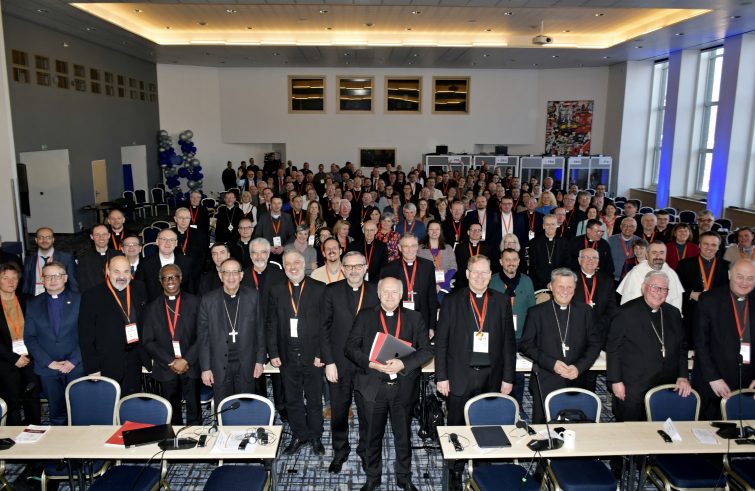
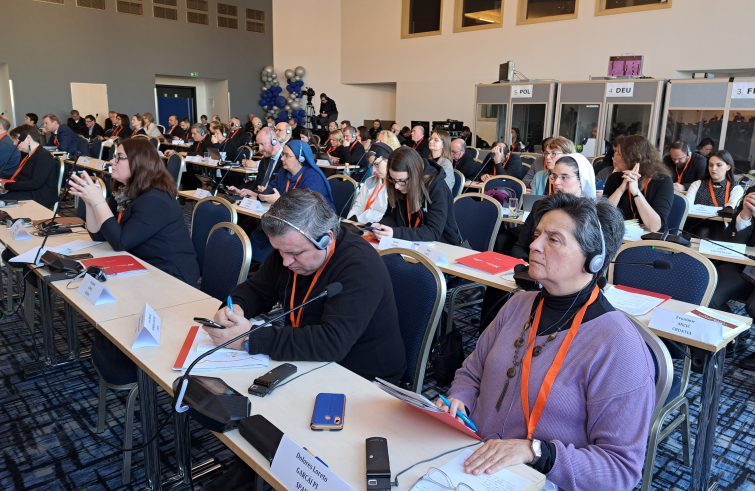 (from Prague) “Take concrete and courageous decisions on the role of women within the Church and on their greater involvement at all levels, also in decision-making and decision-taking processes.” “Explore the forms of a synodal exercise of authority.” “Bridging the gap between faith and culture to bring the Gospel back to people’s feelings, finding a language capable of articulating tradition and aggiornamento.” “Listen to the cry of the poor and the earth in Europe, and in particular the desperate cry of the victims of war who demand a just peace.” These are some of the “concluding recommendations” highlighted in the final communiqué released in Prague at the end of the first part of the European Synodal Assembly. The Presidents of the Bishops’ Conferences will meet from 10 to 12 February to review “collegially the synodal experience that has been shared together”.
(from Prague) “Take concrete and courageous decisions on the role of women within the Church and on their greater involvement at all levels, also in decision-making and decision-taking processes.” “Explore the forms of a synodal exercise of authority.” “Bridging the gap between faith and culture to bring the Gospel back to people’s feelings, finding a language capable of articulating tradition and aggiornamento.” “Listen to the cry of the poor and the earth in Europe, and in particular the desperate cry of the victims of war who demand a just peace.” These are some of the “concluding recommendations” highlighted in the final communiqué released in Prague at the end of the first part of the European Synodal Assembly. The Presidents of the Bishops’ Conferences will meet from 10 to 12 February to review “collegially the synodal experience that has been shared together”.
During four intense days of consultation and dialogue 200 delegates representing 39 European Bishops’ Conferences discussed the ongoing challenges of the Church in Europe.
They shared “the pain of the wounds that mark our recent history”, starting with those that “the Church has inflicted through the abuses perpetrated by people who were performing an ecclesial ministry or office, and ultimately the ruthless violence of the aggression war disfiguring Ukraine and the earthquake that devastated Turkey and Syria.”
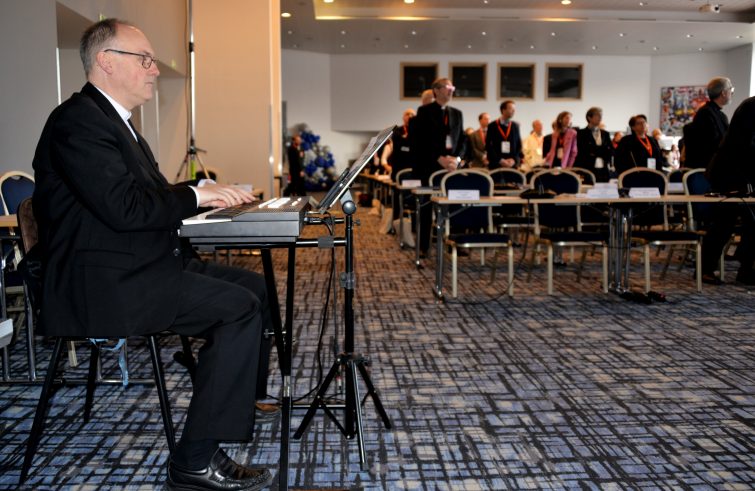 The sessions proceeded according to a very tight schedule. Thirty-nine national reports on the questions of the Document for the Continental Stage were presented during the working sessions. All participants had the opportunity to take the floor, not only in plenary but also during the working groups. At the end of the debates, the Redaction Committee submitted a draft of the final document to the Assembly. The document “is still subject to the “amendments” of the assembly and to some editorial adjustments – CCEE explains in a note -. It will be returned to all participants, after the requested modifications, for possible further revision before being delivered to the General Secretariat of the Synod. “We went through a spiritual experience that it is possible to meet, listen to each other and dialogue starting from our differences and beyond the many obstacles, walls and barriers that our history puts in our way.”, write the delegates.
The sessions proceeded according to a very tight schedule. Thirty-nine national reports on the questions of the Document for the Continental Stage were presented during the working sessions. All participants had the opportunity to take the floor, not only in plenary but also during the working groups. At the end of the debates, the Redaction Committee submitted a draft of the final document to the Assembly. The document “is still subject to the “amendments” of the assembly and to some editorial adjustments – CCEE explains in a note -. It will be returned to all participants, after the requested modifications, for possible further revision before being delivered to the General Secretariat of the Synod. “We went through a spiritual experience that it is possible to meet, listen to each other and dialogue starting from our differences and beyond the many obstacles, walls and barriers that our history puts in our way.”, write the delegates.
There was virtually unanimous consensus on the intention to continue the journey in a synodal style: “more than a methodology, we consider it a way of life of our Church.”
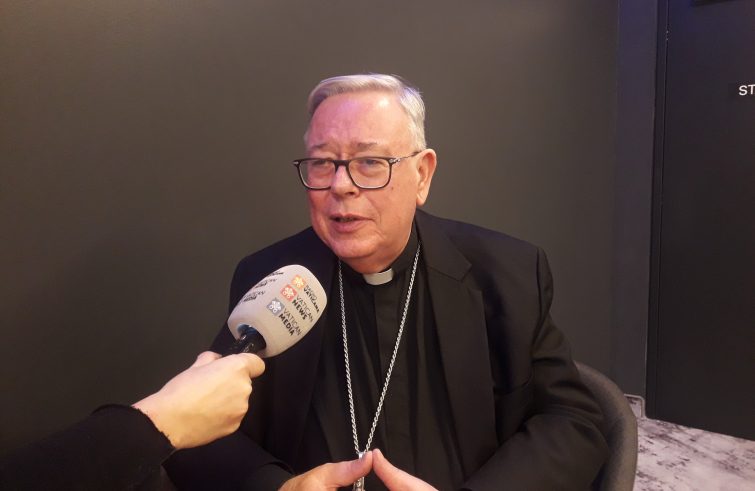 “I am very pleased indeed”. Card. Jean-Claude Hollerich, Archbishop of Luxembourg and General Rapporteur of the 16th Ordinary General Assembly of the Synod of Bishops makes no secret of his great satisfaction. “As we all know,” he explains, “Europe has two different religious cultures, Eastern Europe and Western Europe. Therefore, there could have been strong tensions, but this did not happen. We remained brothers and sisters. We want to walk together. We have differing opinions but this diversity does not interfere with each one’s profound adherence to Christ.” With regard to the major themes brought up during the assembly, the cardinal remarked: “The Church is open to reflect and to pray over these requests. However, inclusiveness is something else, because the Pope said: everyone, everyone. This is clear, at least for me. It’s not up for discussion. But with respect to female priesthood, with respect to married priests, we need to pray, to reflect together, to ponder.” “We must allow the work of the Holy Spirit to guide us in these decisions”, he added. “A decision that is made under pressure will always be a bad decision.”
“I am very pleased indeed”. Card. Jean-Claude Hollerich, Archbishop of Luxembourg and General Rapporteur of the 16th Ordinary General Assembly of the Synod of Bishops makes no secret of his great satisfaction. “As we all know,” he explains, “Europe has two different religious cultures, Eastern Europe and Western Europe. Therefore, there could have been strong tensions, but this did not happen. We remained brothers and sisters. We want to walk together. We have differing opinions but this diversity does not interfere with each one’s profound adherence to Christ.” With regard to the major themes brought up during the assembly, the cardinal remarked: “The Church is open to reflect and to pray over these requests. However, inclusiveness is something else, because the Pope said: everyone, everyone. This is clear, at least for me. It’s not up for discussion. But with respect to female priesthood, with respect to married priests, we need to pray, to reflect together, to ponder.” “We must allow the work of the Holy Spirit to guide us in these decisions”, he added. “A decision that is made under pressure will always be a bad decision.”
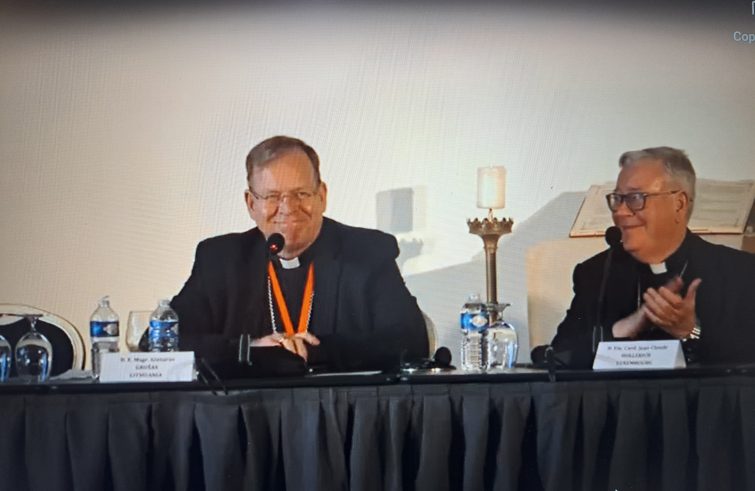 Msgr. Gintaras Grušas, Archbishop of Vilnius and President of the CCEE, also expressed his appreciation in drawing the final conclusions of the first stage of the Synodal Assembly. “We experienced what it means to be a family, lay and consecrated persons, men and women, priests and bishops. And we experienced what it means to be a European family. And as in every family, there can be differences. We are all different. But we managed to cultivate a climate of respect for each person’s dignity, including in our diversity of opinion. And we thank God for that. We thank the Holy Spirit.”
Msgr. Gintaras Grušas, Archbishop of Vilnius and President of the CCEE, also expressed his appreciation in drawing the final conclusions of the first stage of the Synodal Assembly. “We experienced what it means to be a family, lay and consecrated persons, men and women, priests and bishops. And we experienced what it means to be a European family. And as in every family, there can be differences. We are all different. But we managed to cultivate a climate of respect for each person’s dignity, including in our diversity of opinion. And we thank God for that. We thank the Holy Spirit.”
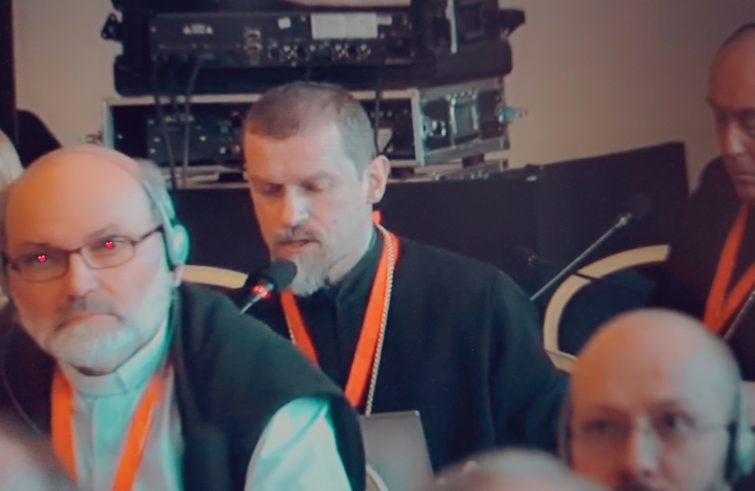 The suffering voices of the Ukrainian people could likewise be heard in the Assembly. “We are suffering the cruelties of war. It is a terrible invasion, a true genocide”, said the Greek-Catholic Auxiliary Bishop of Ternopil-Zboriv Monsignor Teodor Martynyuk, highlighting the scale of this martyrdom that is still ongoing. “Hundreds of thousands of people killed including 460 children. Over 12 million refugees, both internally displaced and refugees who fled abroad and whom you have generously welcomed. A devastating tragedy at the heart of the European continent. 1,100 hospitals have been destroyed by the Russians. They occupied our parishes, two priests are in prison, some priests are being held in filtration camps in Russia, some priests, religious men and women, have been wounded. We agreed from the very start of this Assembly that truth and sincerity would be the focus of our reflections. We therefore call for clear wording in the final document regarding the Russian invasion of Ukraine. We sincerely request that the need for a just peace in Europe be included in the Final Document. We ask that the Ukrainian people’s gratitude to all European nations that stand in solidarity with Ukraine and its suffering be mentioned in the Document.”
The suffering voices of the Ukrainian people could likewise be heard in the Assembly. “We are suffering the cruelties of war. It is a terrible invasion, a true genocide”, said the Greek-Catholic Auxiliary Bishop of Ternopil-Zboriv Monsignor Teodor Martynyuk, highlighting the scale of this martyrdom that is still ongoing. “Hundreds of thousands of people killed including 460 children. Over 12 million refugees, both internally displaced and refugees who fled abroad and whom you have generously welcomed. A devastating tragedy at the heart of the European continent. 1,100 hospitals have been destroyed by the Russians. They occupied our parishes, two priests are in prison, some priests are being held in filtration camps in Russia, some priests, religious men and women, have been wounded. We agreed from the very start of this Assembly that truth and sincerity would be the focus of our reflections. We therefore call for clear wording in the final document regarding the Russian invasion of Ukraine. We sincerely request that the need for a just peace in Europe be included in the Final Document. We ask that the Ukrainian people’s gratitude to all European nations that stand in solidarity with Ukraine and its suffering be mentioned in the Document.”











